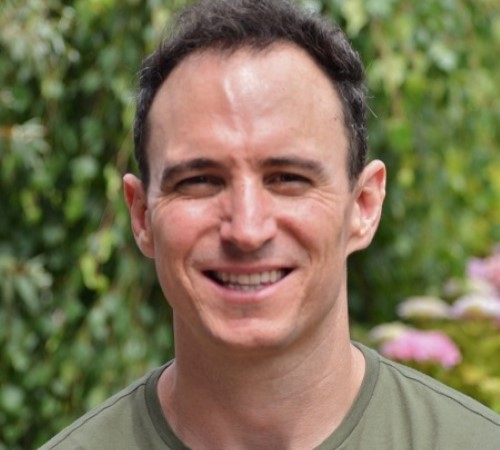Research Fellowships 2024
The diagnosis of numerous cancers often begins with a simple procedure: ‘feeling for a lump’, that is, palpation. During the palpation procedure, a clinician can feel for many characteristics: texture, shape, size, and stiffness. However, as most people will tell you, lumps are stiff. This is an incredible (widely known) biological feature of cancerous tumours: they are stiff. Now, is there a better way to measure the stiffness of tumours?
Magnetic resonance imaging, computerised tomography, biopsies/histopathology, and ultrasonography are invaluable tools in the fight against cancer; however, they cannot access cellular stiffness and present extra challenges such as radiation exposure, tissue destruction, or low-resolution imaging. Developing microscopes and contact-probes (e.g., atomic force microscopy) to investigate cellular stiffness is a major research topic both nationally and internationally. However, none of these techniques can be implemented endoscopically for in-vivo early cancer diagnostics.

Dr Salvatore La Cavera’s vision, being supported by the Royal Academy of Engineering’s Research Fellowship is to give clinicians a new tool that will transform their ability to feel tissue. Instead of their hands and fingers, the future clinician will use a hair-thin stiffness probe, developed by him at the University of Nottingham. The size and shape allows it to be delivered down or alongside endoscopes, needles, catheters, forceps, and more. These combinations will create a sensor network that can continually probe for tissue stiffness during routine or targeted procedures while informing clinicians in real time.
Dr La Calvera’s prototype technology is endoscopically compatible and can measure the stiffness of objects with sizes down to about 300 nm. This means that he can measure the stiffness of individual cancer cells. Furthermore, he has demonstrated that he can differentiate between cancer and normal cells based on their stiffness: feeling for a lump on the cellular level. This will allow clinicians to identify early cancer at the microtumour level, rather than at late-stage malignancy.
Related content
View all programmesSupport for research
The Academy runs a number of grants to support excellent researchers carry out engineering activities and to enable clo…
Research Fellowships
The Academy offers Research Fellowships each year to outstanding early-career researchers to support them to become fut…
